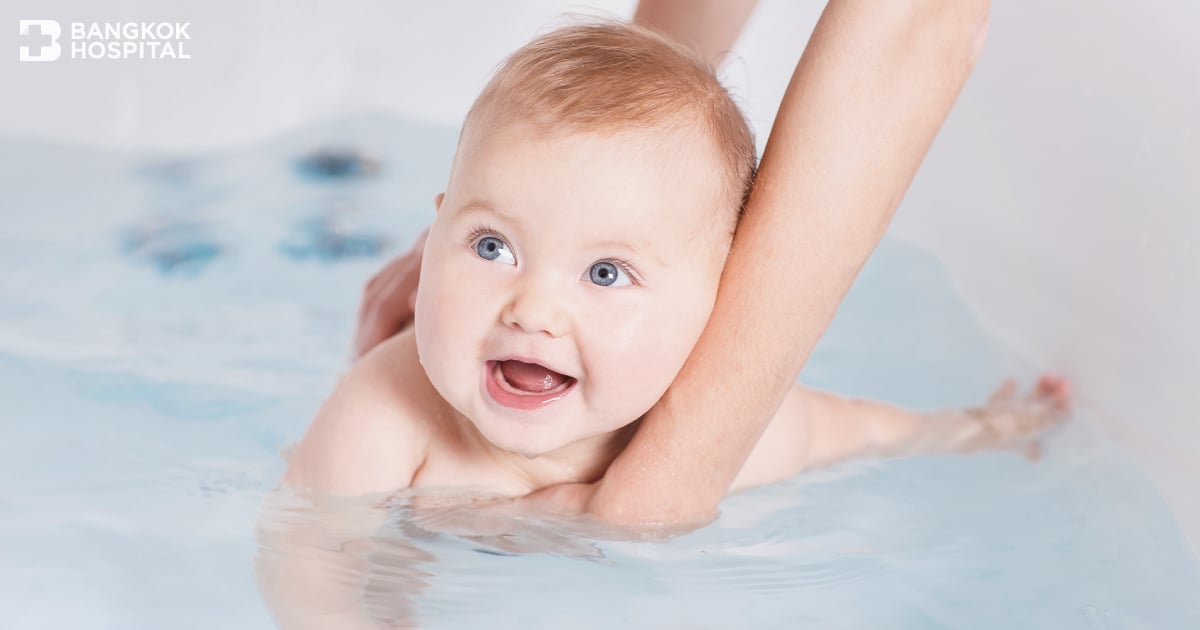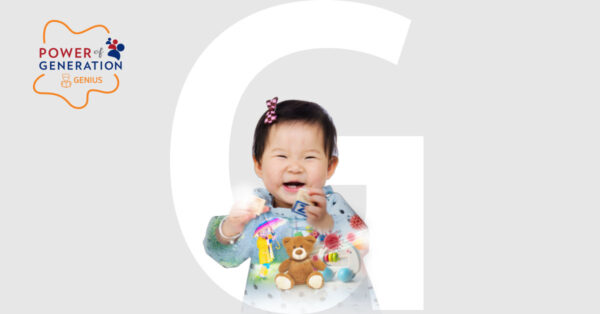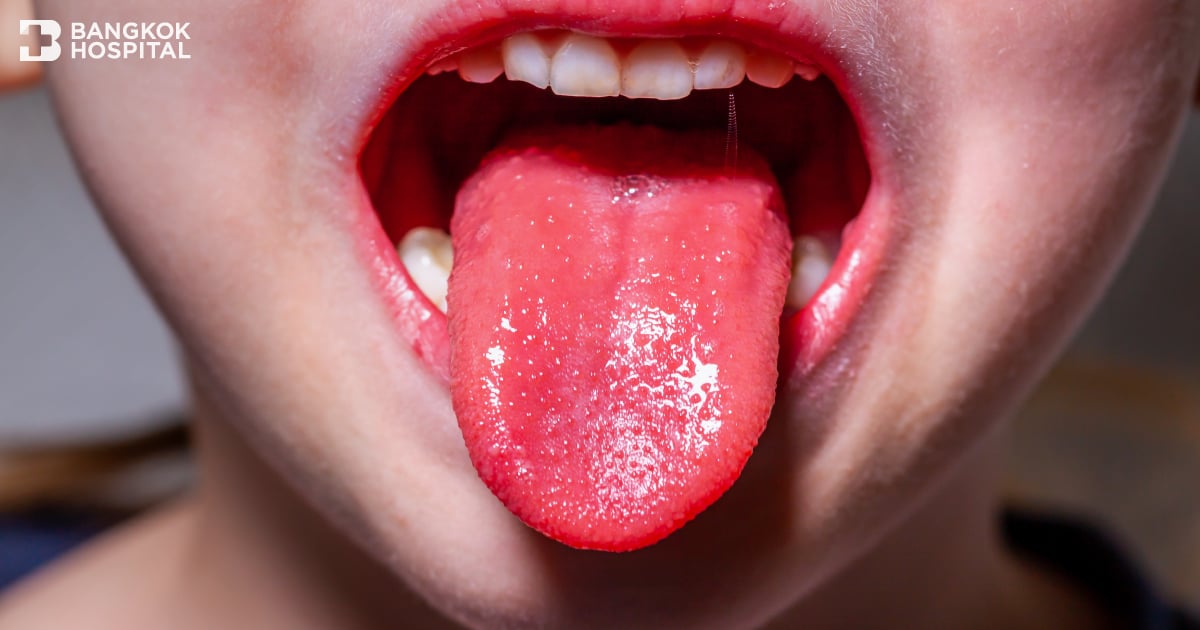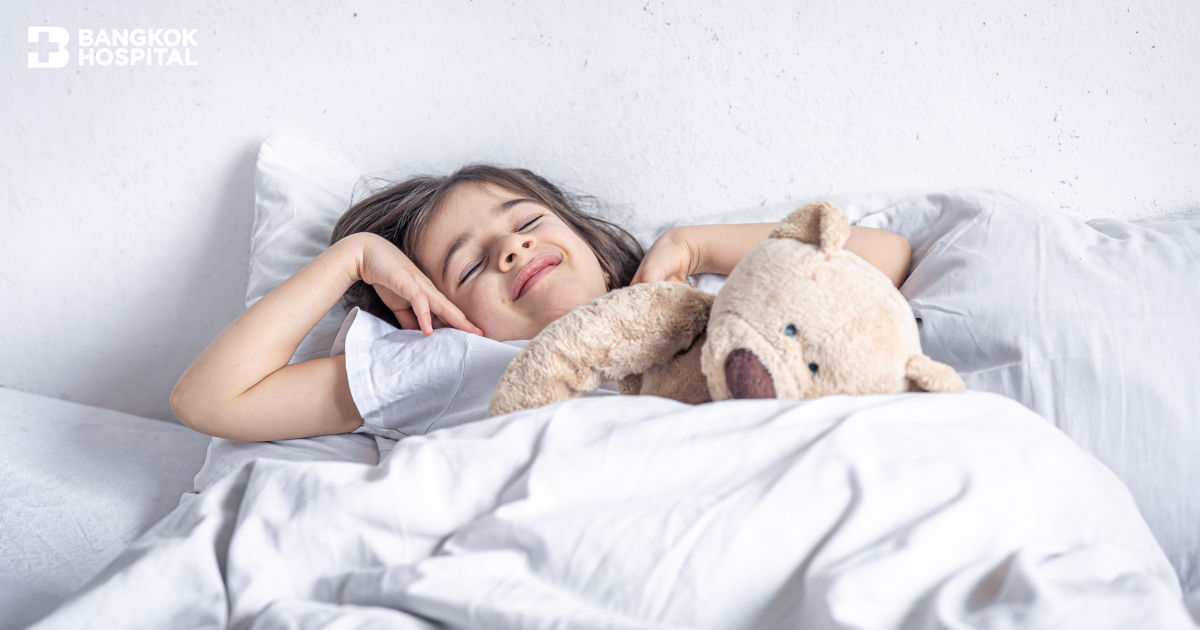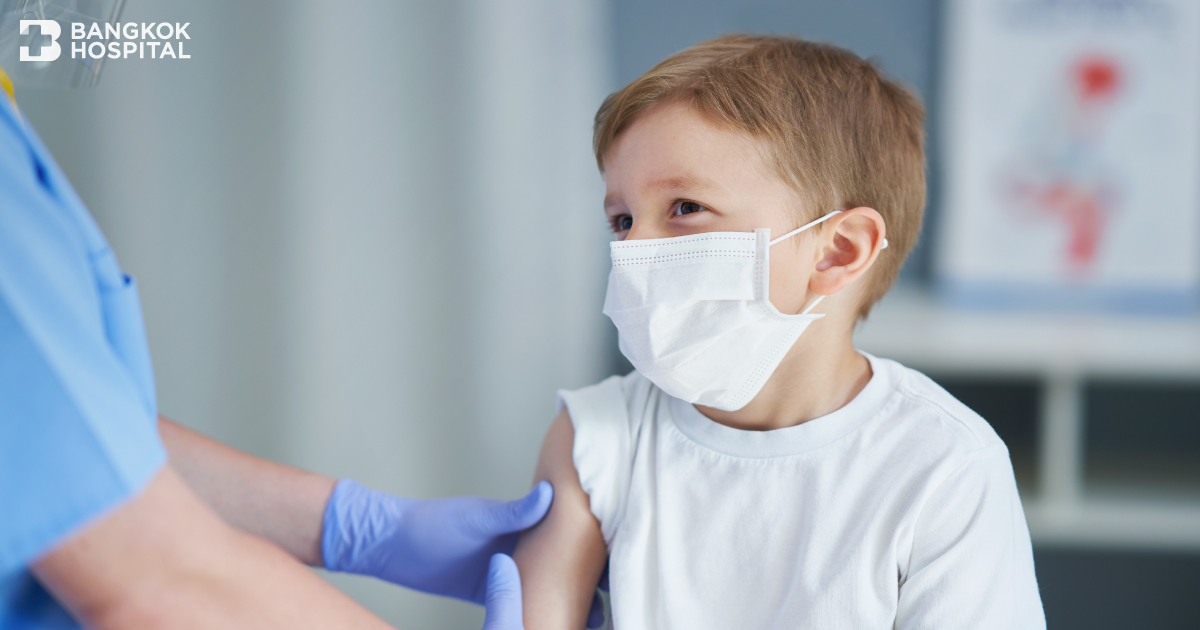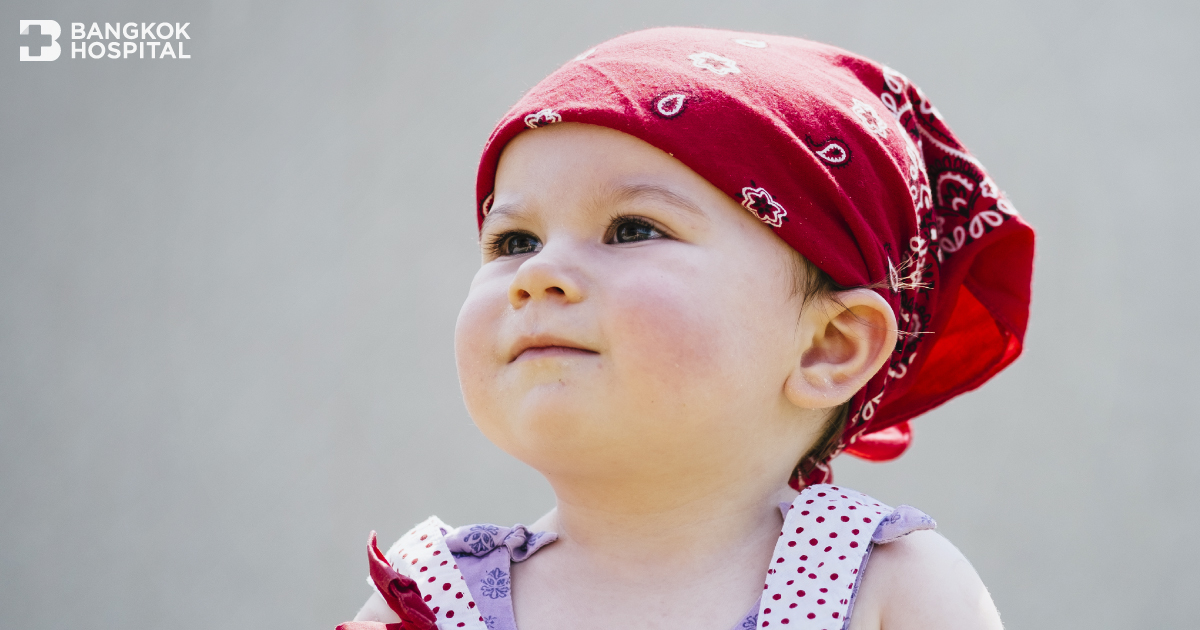As we know, the skin of newborns is delicate and prone to irritation, so bathing and proper skin care will help keep their skin smooth, free from rashes, and healthy for a long time.
8 The following techniques will assist parents and guardians in correctly bathing and caring for the skin of newborns.
1) Bath time can be anytime of the day
Bathing the newborn can be done at any time of the day, often chosen before a feeding, or some families choose to bathe before bedtime, as the baby tends to feel relaxed after a bath, making it easier to eat and sleep longer.
2) Once a day is just right
In Thailand, where the weather is hot and humid and babies often sweat easily, it is recommended to bathe once a day to wash off musty smells, sweat, and milk stains from the baby.
In colder countries, bathing the baby can be done every other day, or 3 – 4 times a week, as bathing too frequently can dry out the skin.
3) Ideal temperature
The perfect warm water is at 27 – 28 degrees Celsius, or at room temperature. Be careful with water that’s too hot as it can dry out the skin.
4) No need for a long bath
The duration of the bath should not be long, avoid playing or soaking in the tub, the total bathing time should not exceed 5 minutes.
5) Good soap for good skin
A good soap should be a liquid soap that is gentle on the baby’s skin. Using bar soap can dry out the skin. It’s recommended to use a gentle formula that can be used from head to toe (Head to Toe Wash).
6) Best to use hands
It’s better to use a sponge or a container to pour water while bathing a child. Do not rub the child’s body forcefully with a sponge or cloth as it can irritate the skin. Using hands to gently wash and wipe off different residues is best.
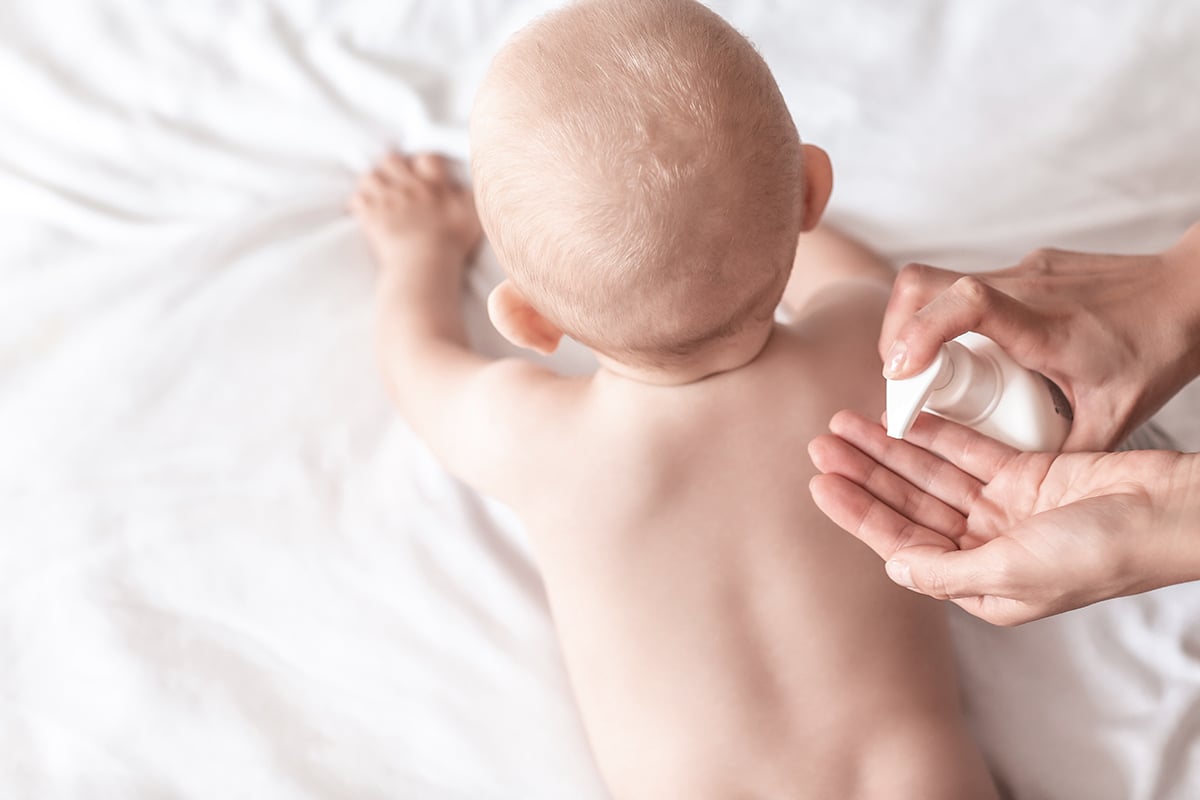
7) Take care after bathing
After bathing, wipe eyes with boiled water, use cotton buds to clean both ears and the outer nostril area, including gently removing mucus from the nose and cleaning the genitals.
8) Apply skin moisturizer after every bath
Using a moisturizer will help keep the baby’s skin hydrated and reduce dry skin, which is a cause of rash. Choose a moisturizer that is gentle, fragrance-free, and free from irritants, and can be applied to both the face and body.
Bathing and caring for newborn skin is not difficult. As long as parents and guardians pay attention and practice correctly, this will help the baby have good skin health and reduce the chance of developing rashes.

